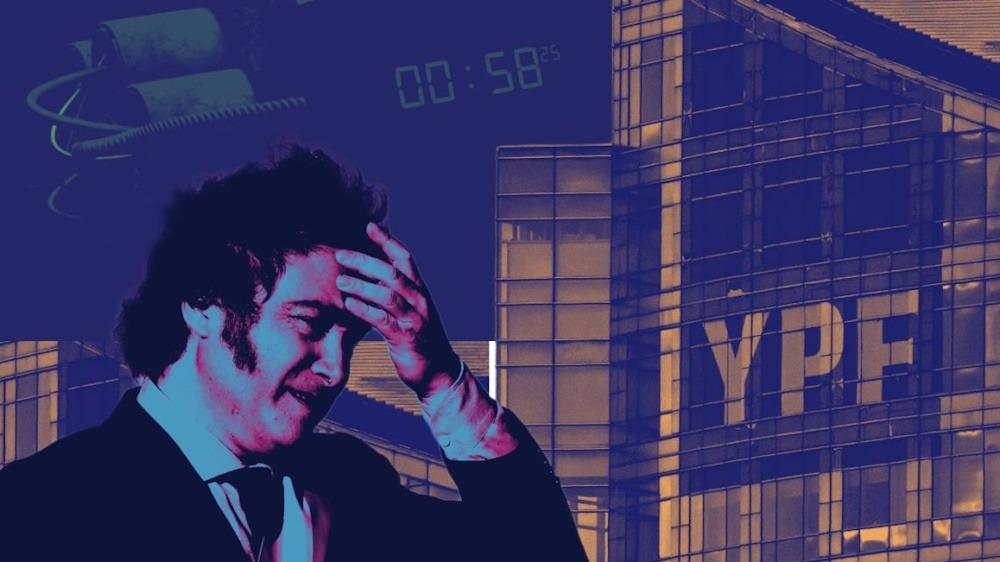The Trump administration is formulating a statement supporting Argentina and opposing hedge funders’ purchase of 51% of YPF. Judge Loretta Preska in New York ordered the transfer of 51% of the flagship oil company’s shares (“turnover”) to hedge funds Burford Capital and Eton Park, which won the lawsuit for US$16.099 billion. Senior Trump administration officials plan to intervene.
After Argentina’s lawyers filed and the Second Circuit Court of Appeals ruled, the YPF stock transfer order was suspended “indefinitely.” The YPF expropriation case and the 2001 defaulted debt holdouts’ payment are affected by this policy. YPF is not involved in the trial or New York procedure. Instead, it and Vaca Muerta are “spoils” of the private company-national government debate. YPF is not participating in negotiations or presentations or has lawyers on the case.
The National Treasury Attorney’s Office, led by Santiago María Castro Videla, represents the Argentine State and hires Cleary Gottlieb Steen & Hamilton LLP. The Attorney’s Office advises the Executive Branch, defends the national government in court, and directs the State Attorneys’ Corps. The Casa Rosada is investigating this office for leaking and selling confidential information.
The Court issued a temporary administrative stay of Loretta Preska’s June 30th order while a three-judge panel resolves on the application to stay the judgment. Also, the appeals panel must consider and react to the appeal. That panel is unformed. While waiting for a Court verdict, which may take two years, proceedings will continue, and numerous deadlines have been set: hedge firms must oppose the suspension request by July 17. Appellant Argentina must react by July 22. This was decided by the Court.
The trial will require New York judges to affirm, partially amend, or revoke the judge’s ruling. The hedge funds maintained that if someone bought more than 15% of YPF, they must provide the same to all shareholders, not just Repsol, as per Article 7 of YPF’s Bylaws. The London hedge fund also claimed damages because after entering the company, the national government suspended Repsol and the Petersen Group’s dividend distribution, causing the companies to default due to their inability to pay. The case will go to the U.S. Supreme Court since neither side will accept a different verdict. The Trump administration prioritizes this.
The US government represented Argentina as an amicus curiae in the YPF case on November 6, 2024. To delay YPF share delivery to pay for the nation’s legal debts, it did so through the Department of Justice. Everything suggests it will again, with good arguments. Days after President Trump’s second election victory, while under the Joe Biden administration, the U.S. Department of Justice denied the Burford fund’s request for share distribution, saying the plaintiffs’ request “violates U.S. sovereign immunity rules.”
Argument I: A US judge cannot return foreign assets.
The Department of Justice warned in 2024 that U.S. judges cannot seize or sell foreign property. The SEC-registered YPF Class D shares he ordered are not listed on Wall Street. YPFD and YPF shares are traded in Argentina and New York, respectively.
Argument II: Judge violates sovereign state powers
Argentina’s defense further claimed that Loretta Preska’s order to hand over the YPF shares breaches U.S. federal law, specifically the FSIA, and international comity. Therefore, defense attorneys warn of a “unconstitutional exercise of extraterritorial jurisdiction” by the judge. The Justice Department warned that Preska’s finding could “unduly interfere” with foreign states’ lawful rights to freely dispose of assets in their own territories and violate U.S. foreign policy interests in reciprocity.
Argument III: compels Argentina to break the law
Cleary Gottlieb Steen & Hamilton argues that the “turnover” would violate Argentina’s laws and permanently remove state authority over YPF, causing irreparable damage and legal impossibility. As stated in the Energy Report, the National Congress must authorize any transfer of YPF shares through a statute because this is how it was renationalized under the country’s constitution. In this instance, the national government or a legislator must push and present a law that complies with the New York verdict. If Congress approves President Javier Milei’s Decree of Necessity and Urgency (DNU) to comply with the Preska verdict, the main oil company’s shares and control would again be privatized. Never before.
Argument IV: Reciprocity phobia
The then-Joe Biden administration and now the Trump administration fear that enforcing a forced embargo on Argentine companies (delivery of shares) would open up international jurisprudence that violates U.S. law because it would allow Argentina to forcibly seize a U.S. company or sovereign asset in the future. This initial worry has been exacerbated by a greater one: that, as previously mentioned, the case would be directed to the U.S. Supreme Court, which will find in favor of the hedge funds, setting a “harmful” precedent for American corporate democracy and capital market legislation.
A secret weapon: a middleman
Days before, New York litigation sources told this site a US declaration in favor of Argentina was coming. This pronouncement may be political and judicial. Trump posted on Truth Social. In recent hours, sources have not ruled out the possibility that the US government could propose to Judge Loretta Preska and the Court of Appeals the appointment of a “intermediary” agent to open a negotiation between the parties, paving the way for an out-of-court settlement with a much lower payment amount than the initial ruling. Today, the national administration is blocking talks to reconcile perspectives.

